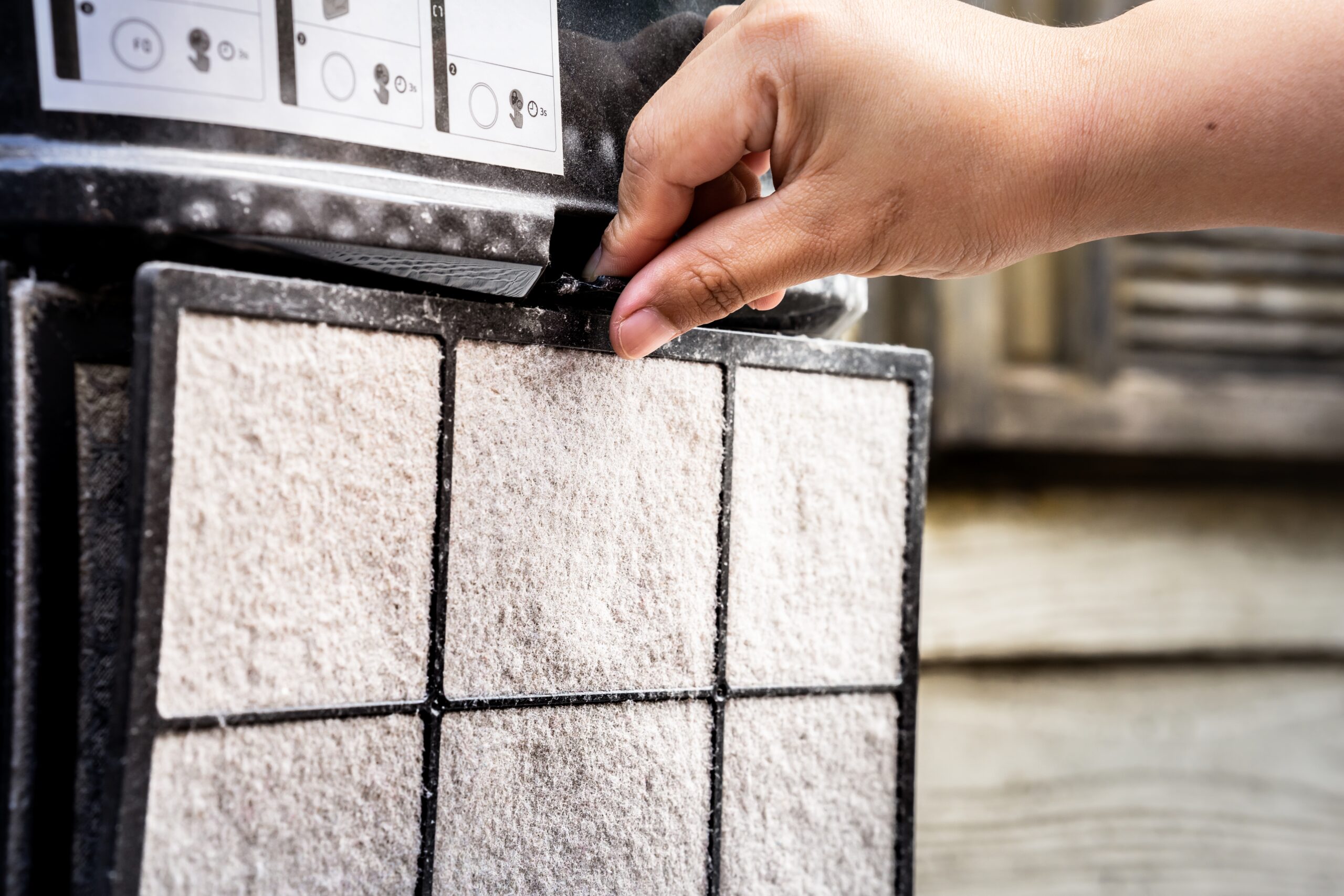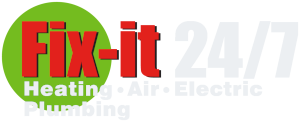Indoor air quality is vital for the well-being and comfort of your family, especially for those with allergies or respiratory issues. Air filters play a crucial role in maintaining clean air by trapping allergens and contaminants, preventing them from circulating throughout your home. However, not all air filters are created equal, and understanding the nuances of MERV ratings and different filter types is essential in choosing the best option for your specific needs.
Continue reading as Fix It 24/7 (Colorado) guides you through the intricacies of MERV ratings, various air filter types, and their efficiency in eliminating allergens and contaminants from your Denver home. As experts in HVAC systems, we are committed to helping you make an informed decision to ensure a healthy and comfortable living environment.
1. Decoding MERV Ratings: A Measure of Air Filter Efficiency
MERV, or Minimum Efficiency Reporting Value, is a rating system that evaluates an air filter’s efficiency in capturing airborne particles. MERV ratings range from 1 to 20, with higher numbers representing a higher filtering efficiency. An air filter’s MERV rating indicates its ability to capture particles of specific sizes, from larger debris like dust and pet dander to smaller particles like smoke and bacteria. Understanding MERV ratings is crucial in selecting the right air filter for your home, as higher-rated filters better reduce the presence of allergens and contaminants, improving indoor air quality. However, it’s essential to consider your HVAC system requirements when choosing a high MERV-rated filter, as increased efficiency might lead to restricted airflow, affecting the performance and energy consumption of your system.
2. Air Filter Types: Features and Benefits
Before diving into specific air filter types, it’s worth noting that filters can be divided into two main categories: disposable and reusable. Both categories have their advantages and limitations depending on factors such as maintenance commitment, budget, and efficiency requirements. To help you make an informed decision, we’ll discuss various air filter types within these two categories.
Fiberglass Filters (Disposable)
Fiberglass filters are an affordable and commonly used option in residential HVAC systems. These low-MERV-rated filters (typically MERV 1 to 4) provide basic air filtration by capturing larger debris, while smaller particles like pollen, mold spores, and pet dander pass through them. They offer a low level of allergen and contaminant reduction but require frequent replacement due to their limited efficiency.
Pleated Filters (Disposable)
Featuring a higher MERV rating than fiberglass filters (usually MERV 5 to 13), pleated filters are composed of folded filter material, typically cotton or polyester. The pleats increase the surface area, enhancing the filter’s ability to trap smaller particles such as dust mites, smoke, and some bacteria. Pleated filters provide improved air quality and allergen reduction compared to fiberglass filters and are an ideal choice for homes with allergy sufferers or asthmatic residents.
High-Efficiency Particulate Air (HEPA) Filters (Disposable)
HEPA filters represent one of the most efficient options available, with MERV ratings of 17 to 20. These filters can capture particles as small as 0.3 microns, effectively trapping allergens, bacteria, viruses, and smoke. Due to their high efficiency, HEPA filters are frequently used in environments requiring stringent air quality control, like hospitals. However, it’s essential to ensure your HVAC system can handle the increased airflow resistance of a HEPA filter before installing it in your home.
Electrostatic Filters (Reusable)
Electrostatic filters utilize electrostatic charge to attract and capture airborne particles, eliminating the need for disposable filter materials. The efficiency of these filters varies by model, but they generally range from MERV 2 to 10. These filters are washable and reusable, making them an environmentally friendly and economical option. Keep in mind that, like any reusable filter, they require consistent cleaning and maintenance for optimal performance.
Activated Carbon Filters (Disposable or Reusable)
Unlike the filters discussed thus far, activated carbon filters focus on eliminating odors and volatile organic compounds (VOCs) from the air. They can also capture some allergens and particulates, but their main advantage is their ability to neutralize unpleasant smells, from cooking odors to cigarette smoke. Activated carbon filters can be used alone or in combination with other filter types for comprehensive air filtration.
3. Balancing Filter Efficiency, HVAC System Compatibility, and Air Quality Requirements
Ultimately, the selection of an ideal air filter for your home should consider three key factors: the air filter’s efficiency (MERV rating), compatibility with your HVAC system, and your specific air quality needs.
Higher MERV-rated filters are more effective at capturing smaller particles and reducing allergens, but they can also cause airflow resistance, affecting your system’s performance and energy consumption. It’s crucial to check your HVAC system’s specifications to ensure it can handle the chosen filter’s MERV rating.
Moreover, consider the presence of allergy sufferers, smokers, or pets in your household. These factors might require a higher MERV-rated filter or specialized filter types, like activated carbon filters, to maintain optimal indoor air quality.
4. Importance of Regular Filter Maintenance and Replacement
Regardless of the filter type and MERV rating you choose, regular maintenance and replacement are vital for maintaining your filter’s efficiency and preventing potential HVAC system issues. A clogged or dirty filter can lead to reduced airflow, increased energy consumption, and system damage.
Disposable filters, like fiberglass or pleated options, should be replaced according to the manufacturer’s recommendations, typically every 30 to 90 days, depending on factors such as allergy presence and filter type. Reusable filters, such as electrostatic or activated carbon filters, should be cleaned regularly according to the manufacturer’s specifications.
Breathe Easier with the Right Air Filter and Our Expertise
Selecting the right air filter for your home is essential in maintaining a healthy and comfortable living environment while ensuring that your HVAC system functions optimally. By understanding MERV ratings, filter types, and your specific air quality requirements, you can make an informed decision to eliminate allergens and contaminants effectively. Regular filter maintenance and replacement play a crucial role in preserving your filter’s efficiency and protecting your HVAC system’s performance and lifespan. Our skilled technicians at Fix It 24/7 (Colorado) are dedicated to helping you find the perfect air filter solution for your needs, ensuring that you and your family breathe cleaner air every day.
Don’t hesitate to consult our experts for guidance on air filter selection, maintenance, and HVAC services in Awendaw. Contact us today to schedule a consultation or service appointment and experience the benefits of improved indoor air quality for yourself.

